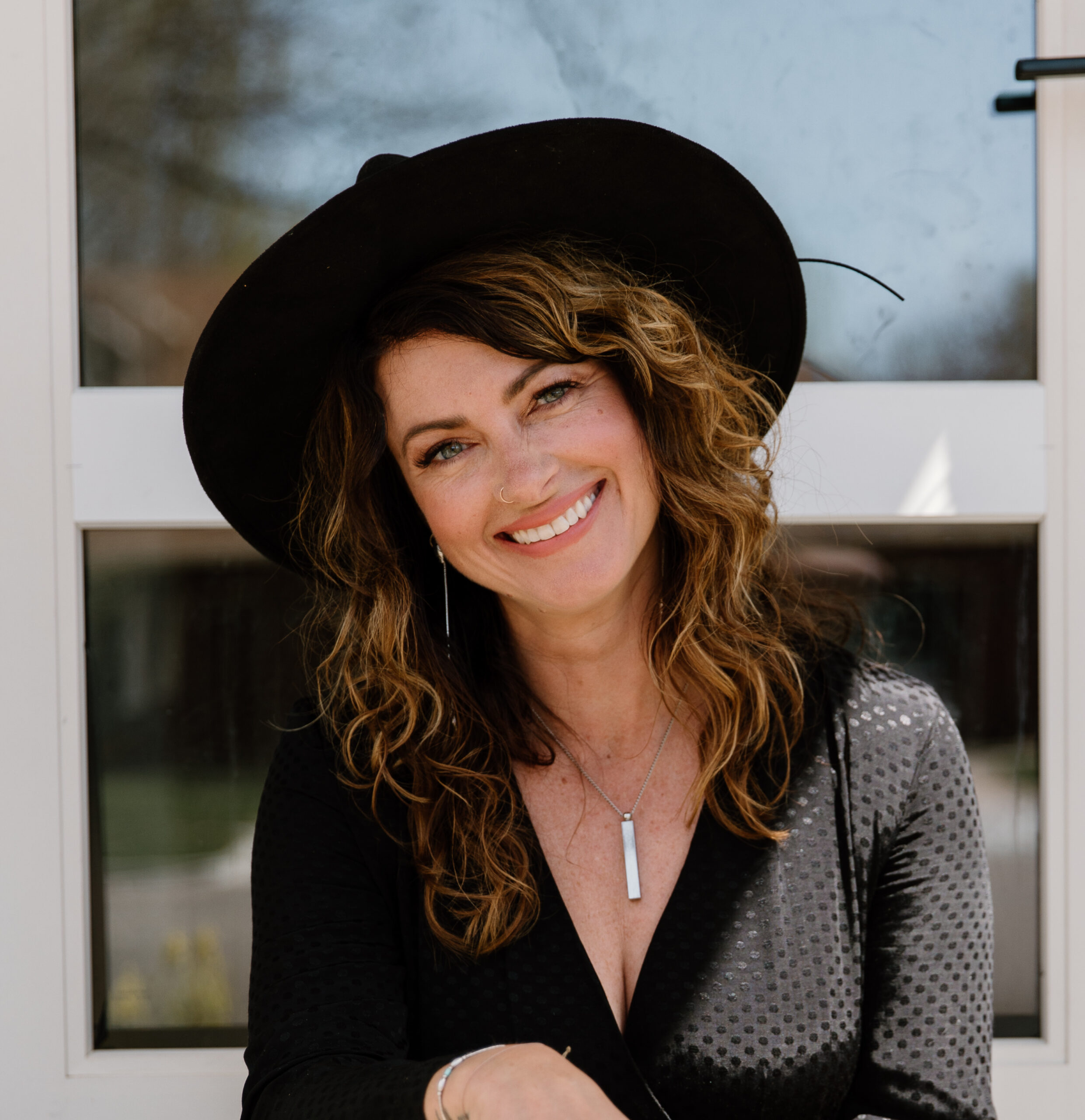
A Self-Care Guide For Teachers (From A Teacher)
After 20 years of experience in education, including online, brick-and-mortar, and blended learning environments, last month marked my final paycheck as a teacher. Knowing something is about to end is the great clarifier. If I’m not going to be doing this anymore, then what about this actually matters?
“Your well-being is the source from which everything else flows.”
As you, my fellow educators, gear up for a new school year, here is the number one thing I learned in all my years of teaching:
What matters most is you. Your well-being is the source from which everything else flows.
Teaching is a difficult job for many reasons. There are aspects and entire seasons that feel like a slog, but I want you to know: your job should help you come alive, not burn you out.
I am not suggesting you won’t feel burnt out at times, but it’s not okay to let your job consistently suck out your life force. Part of this is under your control, and part is not.
But before I give you advice on the parts you can control, let me name the systemic issue outside of your control. You work in an inequitable system that profits off of your martyrdom.
“You work in a system where it’s not okay to name that things are not okay.”
The odds are not stacked in your favor, nor is your labor compensated the way it should be. You deal with bureaucracy, institutional abuse of power, endless workload, endless paperwork, inadequate resources, poor physical space, looming threats to your safety (cue the active shooter drills), large class sizes, lack of mentoring, student behavioral challenges, increasing demand that you be all things to all people while navigating parental criticism and watchdogging, curricular censorship, high stakes testing expectations, lack of recognition and celebration, and a felt incongruency with what you are told will happen on behalf of you and your students, and what actually happens (or doesn’t).
You work in a system where it’s not okay to name that things are not okay. A system where it’s not okay to not be okay.
With stats like last month’s NEA article stating that about 40 percent of new educators leave the profession within the first five years, I could not, with good conscience, make a list of things you can do to take care of yourself without acknowledging you work in a system that makes it very hard to do just that.
So, while we work towards institutional overhaul, here are some ways you can nurture yourself despite the system.
1. Choose to believe you are enough
As educators responsible for the intellectual growth of so many young humans, it is easy to feel we are never doing enough, especially in the wake of COVID and purported “learning loss.”
The demand for measurable outcomes proven by data points turns a human-centered job into a transaction. It requires teachers to value efficiency and compliance over the long game of exploration and self-determination.
“Students are dynamic beings on a continuum, not products in an assembly line or data points on a graph.”
Students are dynamic beings on a continuum, not products in an assembly line or data points on a graph. As teachers, we are sowing seeds. We might never know what kind of fruit they produce. Sometimes we get the privilege of discovering the difference we made—which is a kind of affirmation that could keep us going for the next 20 years, right?
But a lot of this job is thankless and results-less. We don’t get to know how our kind words or consistent presence impacts the arc of a student’s life. The lack of confirmation that what we’re doing is working makes us feel like it’s not working, so we work harder. The needs are endless.
Perhaps it’s time to redefine what “it’s working” means. Your work is “working” when you, as a teacher, show up as yourself in your classroom and let your students see you.
“Your work is “working” when you, as a teacher, show up as yourself in your classroom and let your students see you.”
In all my years of education, I have never had a graduate circle back to tell me how much my content changed their lives. They didn’t care what I knew; they needed to know I cared.
Remember that Maya Angelou quotation, “People will forget what you said, people will forget what you did, but people will never forget how you made them feel?”
What your students need is not all their needs to be met—what they need is you, as their teacher. Not your knowledge—they can get most of that on the Internet (and now through AI). What only you in the whole wide world can offer is your honest humanity as you work out what it means to be human alongside them; it’s called attunement, and it teaches your students the felt sense of their inherent worthiness. Learning content comes secondary, and it will become so much easier when your students feel connected to you and believe that you believe in them, no matter what.
**For more on how attunement affects educational success, read about Dr. Bruce Perry’s neurosequential model of the 3 R’s: regulate, relate, and reason.
2. Unapologetically fill your well
I left teaching for 10 years because I felt stuck in an impossible barter: keep my job and lose myself, or keep myself and lose my job. Keeping my job meant I couldn’t listen to my needs because that meant less time spent on my students. If I did something for myself, I felt guilty, as if I’d win points for staying the longest after school doing unpaid labor, and I’d lose those points if I left my class to go pee.
“We get into this work because our hearts are so big, and then those hearts get exploited.”
We get into this work because our hearts are so big, and then those hearts get exploited, and we end up saying yes to everything but at the expense of our well-being. We’re told to take care of humans but at the cost of our humanity.
We end up too burnt out to get the help we need to not be burnt out. And if we do admit we need help, we undermine our qualifications to do our job.
It’s a false binary that says we must choose between tending ourselves or our work. When you invest in yourself, you are investing in your work because you are the well from which the water flows. Fill the well.
“Your commitment to filling your well with the things that nourish you is a permission slip for your students to do the same.”
Your commitment to filling your well with the things that nourish you is a permission slip for your students to do the same. You show them what it looks like to become more human—to become curious readers of their lives, committed to the work of self-exploration and self-love. You show them what it looks like to have healthy boundaries, to refuse to be exploited by a job or a system. You show them how to trust their intuition, advocate for their needs, and claim their right to live fully alive.
Remember how the number one lesson you can teach them is their inherent worthiness? Show them what belief in inherent worthiness looks like by caring for yourself in front of them.
** For more on the idea that “Good teaching comes from the identity and integrity of the teacher,” read this.
3. Become more alive
I do not define “taking care of yourself” as occasional bubble baths and specialty coffees—though sometimes these self-care practices are nice—I mean the hard work of resourcing yourself to sustain the rigors of this job.
“I do not define “taking care of yourself” as occasional bubble baths and specialty coffees.”
Howard Thurman, a mentor of Dr. Martin Luther King Jr., said it this way, “Don’t ask yourself what the world needs. Ask what makes you come alive and go do that. Because what the world needs is people who have come alive.”
Resourcing can look like taking advantage of discounted therapy offered by your school system, joining a community of care, adopting a physical practice that aligns with your mobility access (walking, yoga, running, gentle stretching, dancing, roller-blading), starting your morning with a ritual of presence, or engaging a bodywork practice (somatic therapist, massage, acupuncture, myofascial work) so you don’t keep everything stored inside until you explode. What you choose does not have to be expensive or elaborate—this often makes it harder to keep up the practice—but it does have to be protected. You do not need to excuse, apologize, or justify your choices to care for yourself.
“You are learning how to become more human so that you can make the world a better place for all humans.”
Resourcing yourself also has what I call the “So That” component. For example, I tell my students every week: You are learning how to become more human so that you can make the world a better place for all humans.
I tell them, “As you learn who you are, you will learn how you want to live, and for a lot of you, this means living as aware and engaged citizens so that you can be about the work of personal and societal transformation.”
“The classroom is a practice room; it’s where we get to practice becoming who we truly are, together.”
Teaching your students how to value their humanity gives them the tools to recognize dehumanization so that when someone tries to violate their human rights, they can stand against that oppression from a place of deeply resourced belief in their right to stand against oppression.
The classroom is a practice room; it’s where we get to practice becoming who we truly are, together. It’s the work of liberation, and it begins with you.
I didn’t leave the teaching profession because of disillusionment or burnout. An archaic tenure model in my district coupled with a lack of funding caused me to lose my job.
“We know this— it’s why we got into this—the kids are the truest teachers.”
If given the choice, I would have stayed in education because I love the kids. It’s been the gift of my life to sit at their feet and learn what it means to become more human. We know this— it’s why we got into this—the kids are the truest teachers.
If you are a new teacher, begin the way you want to end. Invest in the resourcing that will protect you from burnout.
If you are a veteran teacher struggling with burnout, your discernment is the thing that will get you through: What do you need to continue in this profession? Get clear and then give yourself radical permission to go after those things. If, after self-reflection, you decide that you need a break or to end your work in this field, give yourself permission.
This is your one precious life; don’t spend it in a middling martyrdom. Teach in a way that nurtures your life force, or don’t teach.
Trinity Wilbourn is a Denver-based freelance writer, mind/body coach and intuitive guide. As an educational consultant, she works at the intersection of Social Emotional Learning, Mindfulness, and the science of nervous system regulation. In her free time, she can be found hanging with her four kids, spooning her Bernedoodle, singing opera, and dancing in the kitchen. Learn more and explore her offerings at www.trinitywilbourn.com or follow her on Instagram.




